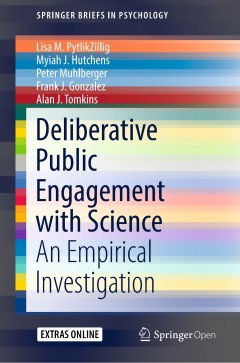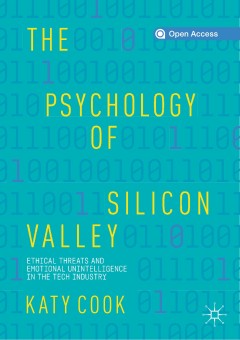Filter by

social psychology of trauma: connecting the personal and the political
Many of us have been affected by trauma and struggle to manage our health and well-being. The social psychological approach to health highlights how social and cultural forces, as much as individual ones, are central to how we experience and cope with adversity. This book integrates psychology, politics and medicine to offer a new understanding that speaks to the causes and consequences of trau…
- Edition
- -
- ISBN/ISSN
- 9781009306997
- Collation
- 222 p
- Series Title
- -
- Call Number
- 302 MUL s

Bullying im klassenverbnd Doch Nicht Nur in Der Schule
Background: Bullying is an aggressive pattern of behavior that is directed against weaker members of a group. The present empirical study examines bullying as a group phenomenon and addresses the question which roles are taken by different members of a school class and how they can be characterized. The particular focus is on social-cognitive and affective reactions to bullying, taking into…
- Edition
- -
- ISBN/ISSN
- 9783658366193
- Collation
- xxi, 349p. ill;
- Series Title
- -
- Call Number
- 302 BUL R

The psychosocial reality of digital travel : being in virtual places
When physical travel to a specific place is prohibited or otherwise difficult or impossible, digital travel provides a promising alternative. The technology to do this is now widely available and many people have the possibility to meet with others digitally, and thus alleviate the social effects of physical isolation. Digital travel can also be source of pleasure and entertainment, and man…
- Edition
- -
- ISBN/ISSN
- 9783030912727
- Collation
- xi, 152 p. ill;
- Series Title
- -
- Call Number
- 302.231 PSY I

Lived nation as the history of experiences and emotions in finland, 1800-2000
This open access book uses Finland in the nineteenth and twentieth centuries as an empirical case in order to study the emergence, shaping and renewal of a nation through histories of experience and emotions. It revolves around the following questions: What kinds of experiences have engendered national mobilization and feelings of national belonging? How have political and societal conflicts tu…
- Edition
- -
- ISBN/ISSN
- 9783030698829
- Collation
- xxi, 392p. : ill
- Series Title
- Palgrave Studies in the History of Experience
- Call Number
- 306.09 VIL l

Belonging and narrative : a theory of the American novel
Why did the novel become so popular in the past three centuries, and how did the American novel contribute to this trend? As a key provider of the narrative frames and formulas needed by modern individuals to give meaning and mooring to their lives. Drawing on phenomenological hermeneutics, human geography and social psychology, Laura Bieger contends that belonging is not a given; it is continu…
- Edition
- -
- ISBN/ISSN
- 9783839446003
- Collation
- 182 p.
- Series Title
- -
- Call Number
- 813.0093552 BIE b

Turn on the light on science : a research-based guide to break down popular s…
"Scientists deserve public recognition. The ways that they are depicted, however, are severely limited in physical and personal traits, helping to establish and enhance stereotypes under the general title of ‘scientist’. These stereotypes range from the arrogant researcher who wants to rule the world, to the lab coat wearing ‘nerdy’ genius, but all generally fall to an extreme view of a…
- Edition
- -
- ISBN/ISSN
- 9781911529057
- Collation
- xvi, 103p.
- Series Title
- -
- Call Number
- 509 TUR t

Bread, cement, cactus : a memoir of belonging and dislocation
In this exploration of the meaning of home, Annie Zaidi reflects on the places in India from which she derives her sense of identity. She looks back on the now renamed city of her birth and the impossibility of belonging in the industrial township where she grew up. From her ancestral village, in a region notorious for its gangsters, to the mega-city where she now lives, Zaidi provides a nuance…
- Edition
- -
- ISBN/ISSN
- 9781108886932
- Collation
- vi, 159 p. : ill
- Series Title
- -
- Call Number
- 828.9208 ZAI b

Deliberative public engagement with science : an empirical investigation
This compact open access reference delves beyond popular concepts of educated consumers and an informed public by examining the science behind deliberative engagement. Using data from four longitudinal studies, the authors assess public engagement methods in deliberative discussions of ethical, legal, and social issues concerning innovations in nanotechnology. Coverage includes the theoretical …
- Edition
- -
- ISBN/ISSN
- 9783319781600
- Collation
- xi, 129p. : ill.
- Series Title
- -
- Call Number
- 155.2 PYT d

Breaking intergenerational cycles of repetition : a global dialogue on histor…
The authors in this volume explore the interconnected issues of intergenerational trauma and traumatic memory in societies with a history of collective violence across the globe. Each chapter's discussion offers a critical reflection on historical trauma and its repercussions, and how memory can be used as a basis for dialogue and transformation. The perspectives include, among others: the heal…
- Edition
- -
- ISBN/ISSN
- 9783847402404
- Collation
- xi, 359 p.; 22 cm.
- Series Title
- -
- Call Number
- 303.6 BRE b

The psychology of Silicon Valley : ethical threats and emotional unintelligen…
This open access book explores the conscious and unconscious norms, values, and characteristics that drive behaviors within the high-tech capital of the world, Silicon Valley, and the sector it represents. In an era where the reach and influence of a single industry has the potential to define the future of our world, it has become apparent just how little we know about the organizations drivin…
- Edition
- -
- ISBN/ISSN
- 9783030273644
- Collation
- viii, 314p. : ill.
- Series Title
- -
- Call Number
- 302.35 COO p
 Computer Science, Information & General Works
Computer Science, Information & General Works  Philosophy & Psychology
Philosophy & Psychology  Religion
Religion  Social Sciences
Social Sciences  Language
Language  Pure Science
Pure Science  Applied Sciences
Applied Sciences  Art & Recreation
Art & Recreation  Literature
Literature  History & Geography
History & Geography